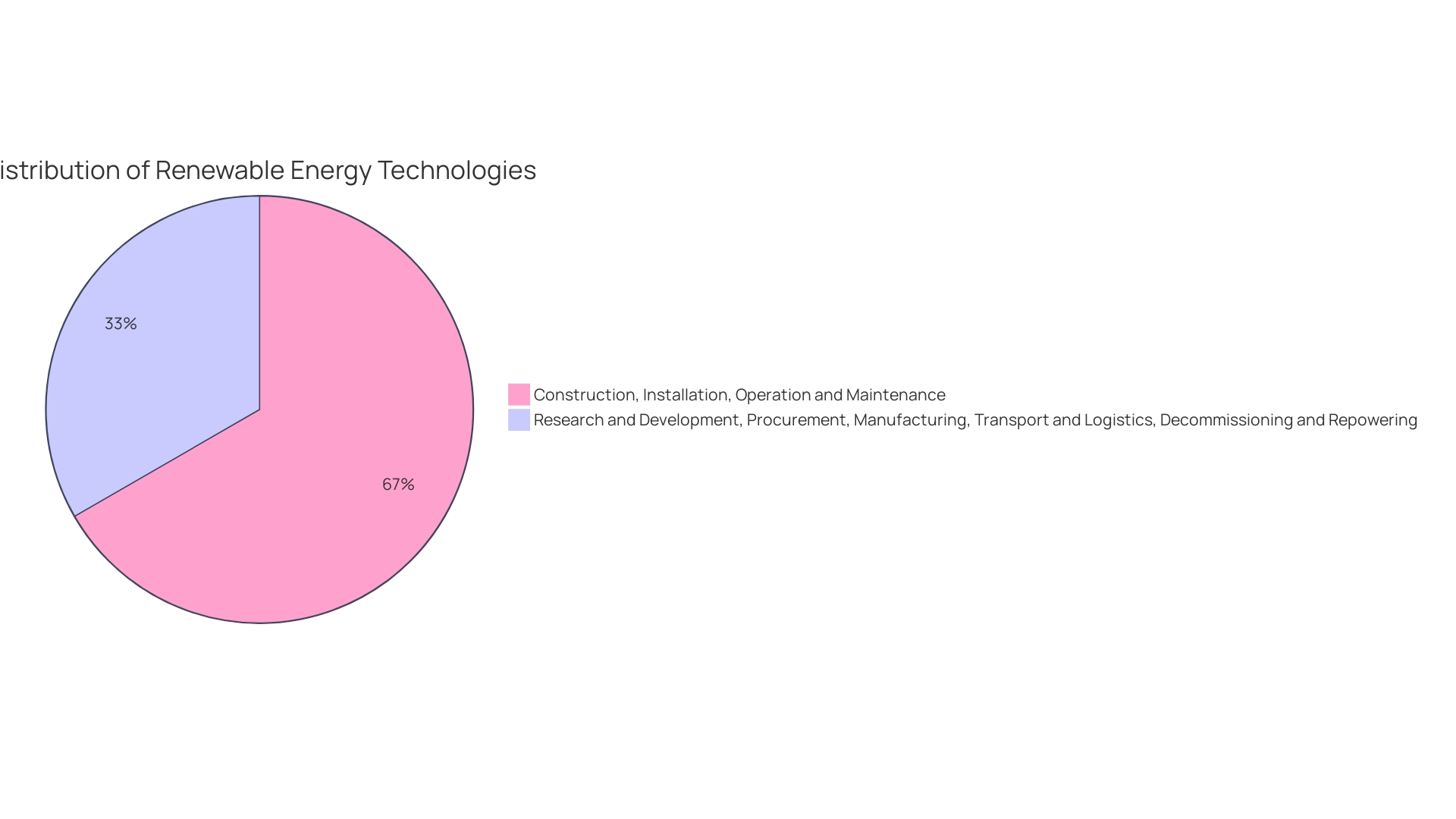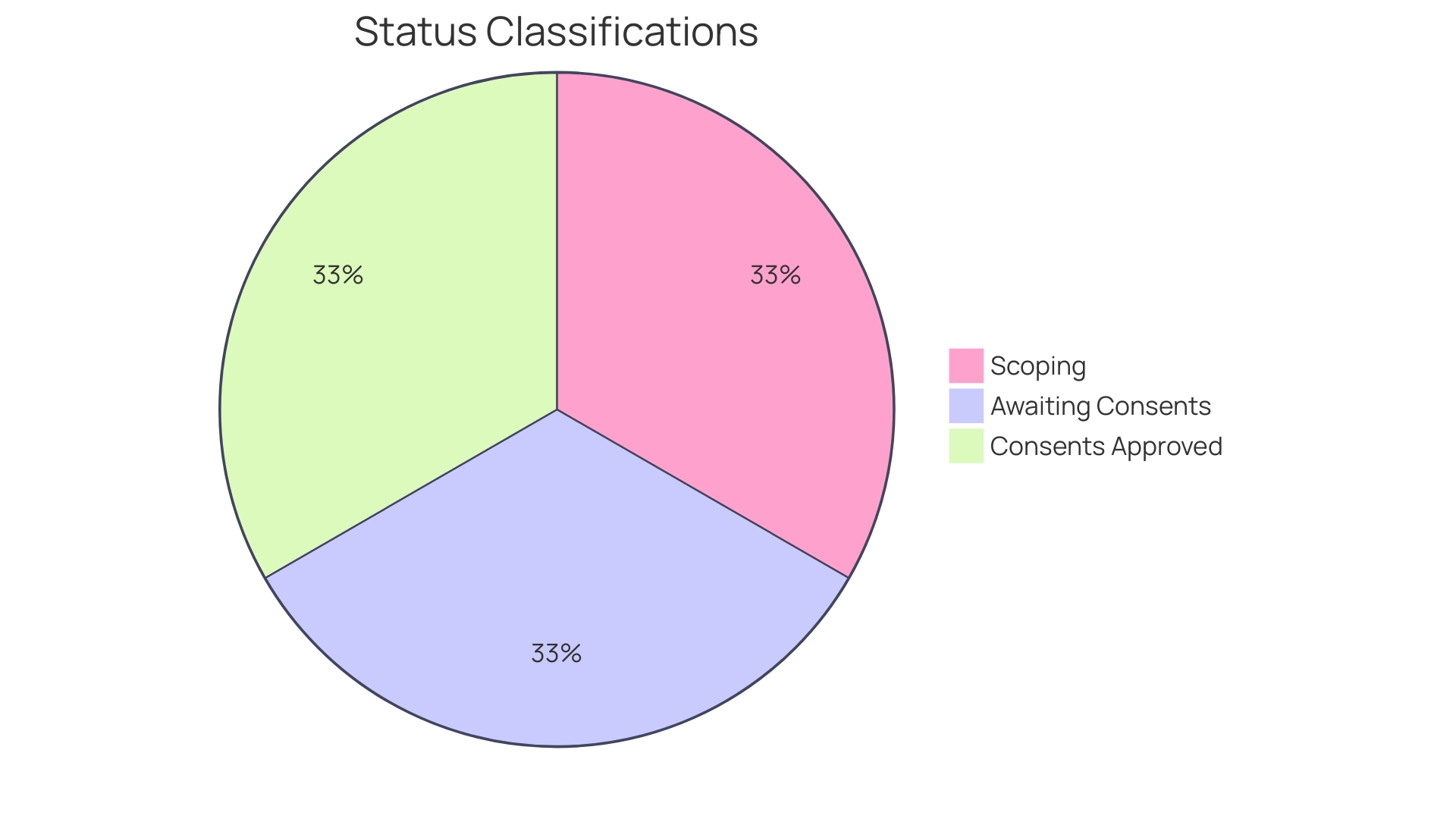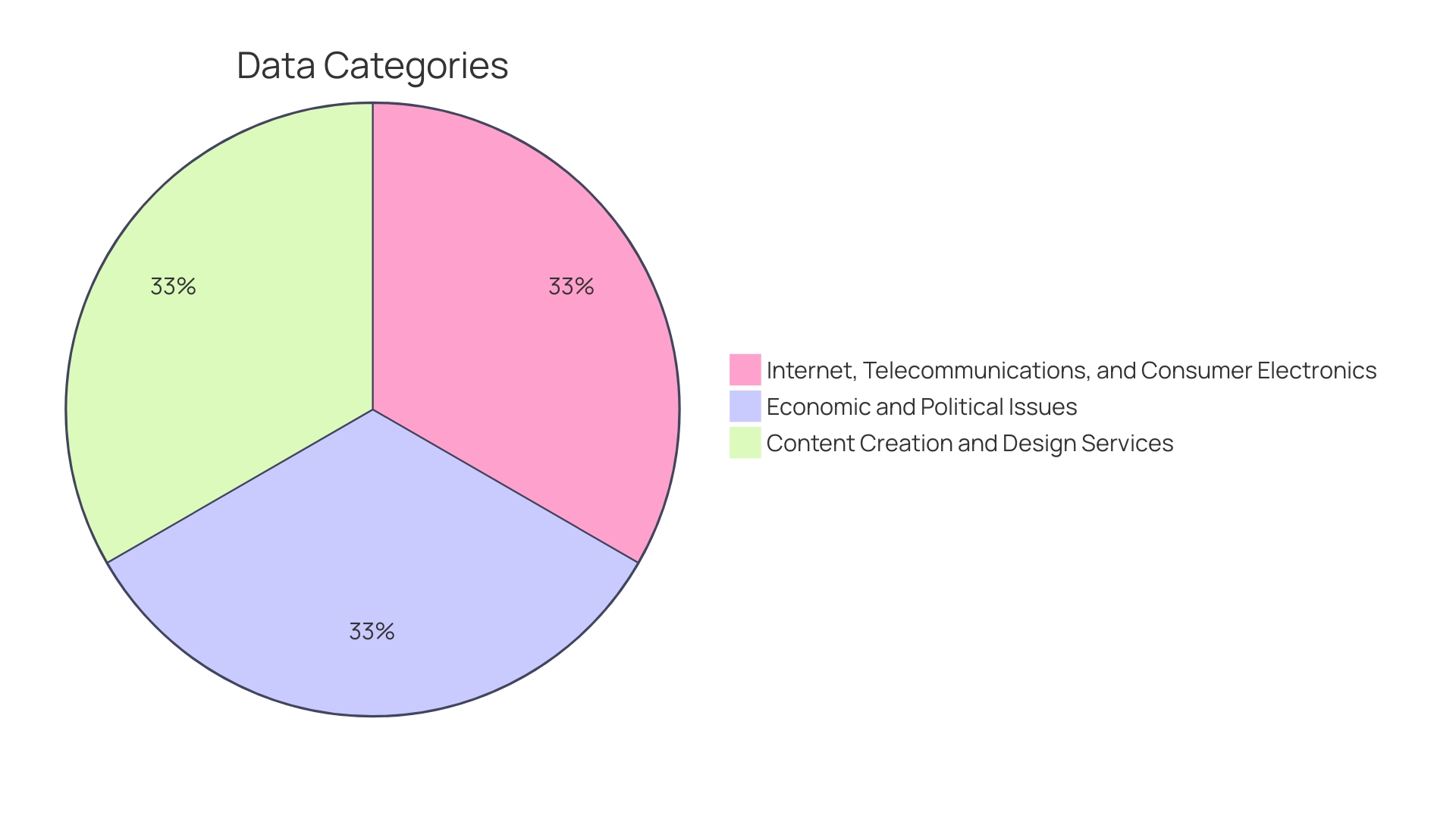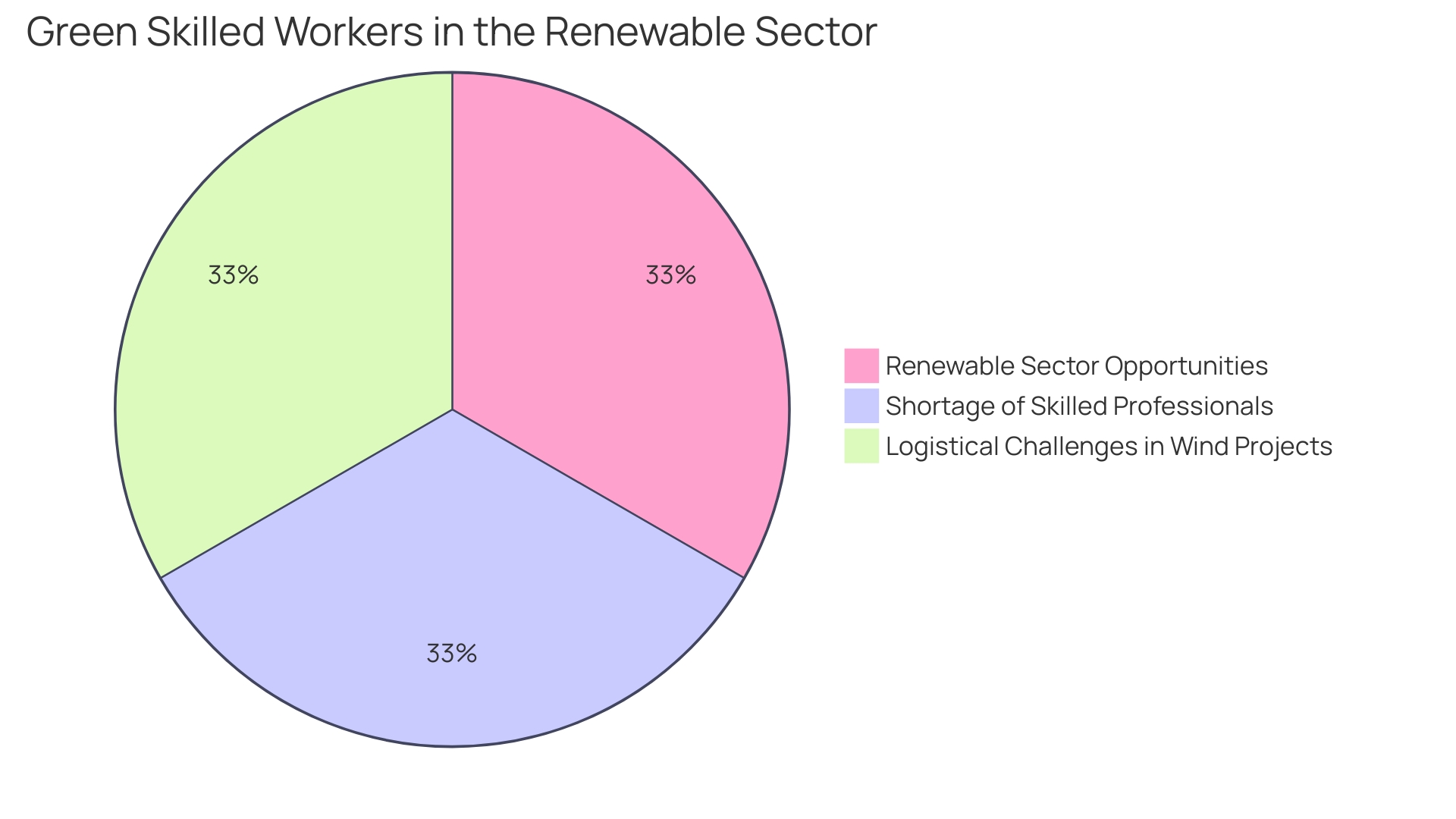Introduction
The transformative role of wind energy consultants in harnessing the power of the wind for sustainable electricity generation is crucial in addressing the technical and strategic challenges of wind energy projects. Equipped with specialized knowledge, these professionals offer actionable insights and tailored solutions that align with the unique needs of each project. This article explores the multifaceted responsibilities of wind energy consultants, from analyzing wind data and modeling energy yield to ensuring site compliance and technical due diligence.
It also delves into their role in developing and implementing energy management plans, managing client relationships and communication, and staying updated with legislation and market trends. The qualifications and skills required for wind energy consultants are discussed, along with the career prospects and growth opportunities in this rapidly expanding field. As the world strives for a carbon-neutral future, wind energy consultants play a pivotal role in shaping a sustainable and equitable energy landscape.
Understanding the Role of a Wind Energy Consultant
The transformative role of wind energy consultants is evident in their contribution to harnessing the power of the wind for sustainable electricity generation. Equipped with specialized knowledge, these professionals are instrumental in addressing the technical and strategic challenges associated with wind energy projects. Their expertise is vital for interpreting complex data, offering actionable insights, and providing tailored solutions that align with the unique needs of each project.
For instance, consider the case of Uruguay, where 98% of the grid is powered by green energy, largely due to the strategic planning and utilization of the country's abundant wind resources. Pioneering figures like Mendez Galain capitalized on Uruguay's wind-rich landscape, transforming uninhabited agricultural land into thriving wind farms, which now contribute approximately 40% to the nation's energy production.
Similarly, John Barton of CREST furthers the field through his research on accommodating variable wind power supply and developing tools like the Future Energy Scenario Analysis (FESA) for comprehensive energy system modeling. His work exemplifies the multifaceted responsibilities of wind energy consultants, from condition monitoring of wind turbines to exploring sociotechnical changes for energy security.
As wind energy technology advances, consultants stay abreast of innovations such as taller turbines with larger rotor diameters, which significantly enhance the viability of wind energy in less windy regions. This progress is underscored by the evolution of turbines from the 1990s to the 2020s, with hub heights increasing to 90 meters and rotor diameters to 125 meters, alongside a surge in power capacity from 0.2 MW to 3 MW.
Success in this field also requires an understanding of the market landscape and the ability to articulate one's value proposition to potential employers or clients, as highlighted by industry experts. A consultant's ability to diagnose the challenges faced by organizations and offer bespoke solutions is crucial for making a meaningful impact in the renewable energy sector.
This dynamic blend of technical prowess and strategic acumen defines the essence of a wind energy consultant, making them pivotal players in the journey towards a carbon-neutral future.

Analyzing and Interpreting Wind Data
Harnessing wind energy involves sophisticated analysis to determine the most viable locations for wind farm development. Wind energy consultants leverage a variety of data, such as wind speed, direction, and turbulence, to evaluate the potential of a site. These evaluations are critical as they inform decisions regarding project siting and design, ensuring that the development of wind energy resources is both efficient and effective.
Advanced digital tools and simulation software have become invaluable in this process. For instance, the creation of digital twins allows for the visualization and monitoring of wind resources, enabling consultants to predict and optimize the performance of wind energy systems throughout their lifespan. This aligns with the broader industry trend towards sustainable energy solutions, as seen with Bosch's development of the solid oxide fuel cell system, which emphasizes high efficiency and low emissions.
Furthermore, wind turbines themselves are evolving. The United States has seen an increase in turbine height and rotor diameter, translating to greater power capacity. Innovations are allowing for taller turbines that can access steadier, stronger winds at higher altitudes, making wind energy more feasible across varied landscapes.
The wind energy industry's commitment to sustainability is also evident in the European Union, where a Wind Power Package has been introduced to expedite wind energy manufacturing and deployment. This initiative underscores the role of wind energy in the transition towards climate neutrality, while also fostering economic growth and job creation.
As the demand for electricity rises and the challenges of climate change mount, the importance of accurate wind data analysis and the integration of renewable energy sources into the power grid cannot be overstated. Wind energy consultants are at the forefront of this transformation, utilizing data and technology to pave the way for a greener, more sustainable future.

Modelling Wind Flow and Energy Yield Assessment
Wind energy consultants are at the forefront of renewable energy advancements, employing cutting-edge modeling software to simulate wind flow patterns and determine the energy yield of proposed wind farms. Their meticulous energy yield assessments predict expected power output, a critical factor in assessing the financial prospects of wind energy projects. The evolution of wind turbine technology—with increases in tower height and rotor diameter, and the scaling up of power capacity from the 1990s to the 2020s—has enabled projects to tap into high-altitude winds and generate more power, thereby enhancing the economic feasibility of wind energy in previously challenging locations. By integrating the latest technological advancements and market insights, consultants provide developers and investors with a comprehensive analysis of a project's potential, ensuring informed decisions that align with the industry's growth and the global shift towards sustainable energy solutions.

Site Compliance and Technical Due Diligence
Wind energy consultants play a pivotal role in advancing sustainable energy projects by ensuring compliance with complex regulatory frameworks and conducting meticulous technical due diligence. A prime example of their significance is seen in the digitalization of permitting processes—a crucial step towards more efficient and transparent project approvals. Recognized by WindEurope, AWS, and Accenture, the innovative software EasyPermits has demonstrated success in Denmark and Poland by expediting the permitting process, thereby addressing inefficiencies that have historically led to delays and increased costs, sometimes surpassing tens of thousands of Euros.
The revised Renewable Energy Directive (RED III) and the Wind Power Package from the European Commission have further underscored the urgency of digitalizing permitting procedures, with a notable provision being the overriding public interest (OPI), which aims to streamline legal challenges. As of July, governments are tasked with integrating these provisions to facilitate a quicker, more streamlined process that aligns with the public interest.
In the broader context of energy transition, wind energy's growth is evident across North America, with its contribution to electricity generation jumping from less than 1% in 2000 to 8% in the United States and 6% in Canada by 2020. This shift not only carries public health benefits by reducing local air pollution but also aids in mitigating climate change through decreased carbon emissions. Nevertheless, wind energy development can face political hurdles at the local level, making the role of consultants in navigating these challenges and fostering stakeholder collaboration all the more critical.
In light of the rapid expansion of the wind energy sector and the push for greener initiatives as demonstrated by BP Inc.'s commitment to net-zero by 2050, the consultant's expertise in identifying potential risks and coordinating with regulatory agencies is invaluable. These professionals ensure that legal and environmental mandates are met, paving the way for sustainable development that harmonizes economic goals with ecological stewardship.
Developing and Implementing Energy Management Plans
With the world setting ambitious targets to combat climate change, such as the United States' goal for 100% carbon pollution-free electricity by 2035, wind energy consultants are increasingly pivotal. These professionals integrate with project teams to refine wind farm operations, leveraging their expertise to augment the output and efficiency of wind turbines. Their role extends beyond mere oversight, involving meticulous monitoring and analysis of operational data to pinpoint enhancement opportunities and deploy strategies that bolster wind energy system performance.
The significance of this role is exemplified by Uruguay's remarkable achievement where, in a typical year, 98% of its electricity grid is powered by renewable sources, largely due to the country's strategic exploitation of its wind-rich landscape. Uruguay's success story, where wind power contributes around 40% to the national energy mix, underscores the potential of well-managed wind resources and the importance of expert consultancy in realizing this potential.
Furthermore, the European Union's recent Wind Power Package, revealed in October 2023, encapsulates the region's commitment to strengthening its wind industry. This package includes a Wind Power Action Plan with 15 actions aimed at fortifying the supply chain and enhancing industry resilience, with a particular focus on auction design and pre-qualification criteria for projects.
Consultancy firms like DNV are at the forefront of supporting wind energy growth by addressing seven key areas, including blade diligence, operational excellence, and forecasting operations and maintenance costs. Blade reliability has emerged as a major challenge, with the increasing complexity of wind turbine technology necessitating comprehensive strategies for blade assessment and risk management.
The dynamic growth of the wind energy sector presents both challenges and opportunities. As demand for clean energy surges, the industry's supply chain must adapt to remain competitive. Consultancy services thus play a critical role in enabling operators to navigate the evolving landscape, mitigate risks, and ensure the longevity and efficacy of their wind energy assets. With strategic support, wind energy consultants can help operators not just to survive but to thrive in a market poised for unprecedented expansion.

Client Relationship Management and Communication
In the dynamic field of wind energy consulting, fostering robust client relationships and maintaining clear communication channels are paramount. Consultants must immerse themselves in their clients' unique needs to devise bespoke solutions that resonate with their objectives. By ensuring consistent updates and transparent communication, consultants fortify trust and strengthen client rapport. Serving as the connective tissue between clients, project teams, and various stakeholders, wind energy consultants are instrumental in orchestrating seamless project flows and contributing to the dependable delivery of green electricity. Amidst a backdrop of global challenges, such as the COVID-19 pandemic and the pressing need for renewable energy sources, the role of wind energy consultants has become even more critical. They must navigate complex permitting processes, like those streamlined by solutions such as EasyPermits, and overcome environmental and logistical challenges, similar to those faced by ScottishPower Renewables in their offshore ventures. Moreover, the industry's competitive nature, underscored by rapid innovation and extensive supply chain demands, requires consultants to be adept at managing both technological and human resources to keep pace with the burgeoning demand for wind energy. As the energy sector evolves, with initiatives like the Inflation Reduction Act catalyzing change, consultants are at the forefront, leveraging their expertise to guide the transition towards a more sustainable future.
Staying Updated with Legislation and Market Trends
Consultants in the wind energy sector are at the forefront of supporting the transition towards sustainable power sources. As the demand for renewable energy increases, underscored by companies like Equinor aiming to reduce carbon emissions by more than half within the next few decades, consultants are essential in navigating this evolving landscape. They keep abreast of legislative developments and market movements, leveraging this knowledge to advise clients on potential impacts to their projects. For example, the European Commission's Wind Power Package and its digital permitting platform illustrate the industry's move towards streamlining processes, where initiatives like EasyPermits demonstrate the integration of digital solutions to enhance efficiency. Moreover, as companies and governments implement various regulations to promote renewable energy initiatives, consultants offer crucial insights into industry best practices and cutting-edge technologies, positioning their clients to capitalize on investment opportunities in this dynamic sector.
Types of Wind Energy Consulting Roles
The landscape of wind energy consulting is a dynamic and multifaceted arena, encompassing a range of specialized roles that cater to the diverse needs of clients in the sector. From conducting meticulous site assessments to gauging the feasibility of prospective projects, consultants lay the foundation for successful wind energy developments. In contrast, other experts in the field are dedicated to steering projects to completion through adept project management or honing the operational efficiencies of wind farms through technical optimization.
The significance of these consulting roles is underscored by the global push towards sustainable energy sources, as nations set ambitious targets for reducing carbon emissions. For example, the remarkable case of Uruguay, which now sources 98% of its electricity from renewable energy, predominantly wind power, demonstrates the pivotal role of strategic consulting in achieving such milestones. Similarly, in the United States, the Biden Administration aims for a carbon pollution-free electricity grid by 2035, a goal that will undoubtedly require the expertise of specialized wind energy consultants.
As the industry continues to evolve, the importance of identifying and engaging the right consulting expertise cannot be overstated. A recent report highlights the extensive labor requirements across various project lifecycle stages, including construction, installation, operation, and maintenance, which do not encompass the additional workforce needed for research, development, and logistics. These insights into the industry's complexities and growth prospects further establish the critical need for tailored consulting services.
Moreover, the evolving regulatory landscape, exemplified by the shipping industry's stringent emissions rules, and the noted gender disparity in green energy jobs, reflect the broader challenges and opportunities that wind energy consultants navigate. With the right consultant, wind energy projects can not only achieve technical and economic viability but also contribute to a more sustainable and equitable future.
Qualifications and Skills Required for Wind Energy Consultants
Wind energy consultants are at the forefront of shaping a sustainable future, bringing with them a wealth of expertise in engineering, renewable energy, and environmental sciences. Their role is multifaceted, combining a deep understanding of wind energy principles and the latest technological advancements with a sharp analytical mind capable of solving complex problems. These professionals are critical in ensuring energy systems operate safely and effectively, particularly as the world shifts towards digital solutions in managing decarbonization and the intricate transitions within the energy sector.
The demand for skilled professionals in wind energy is soaring. A report from the Offshore Wind Industry Council (OWIC) projects that the UK's offshore wind sector alone will need over 70,000 additional workers by 2030 to sustain its expected growth. Despite the renewable sector's rapid expansion and the buzz around innovation, a mere 1/8th of the global workforce currently has the green skills necessary to support this burgeoning industry. The specialized roles in wind turbine design, installation, and maintenance are growing faster than the number of qualified professionals entering the field, exacerbated by an ageing workforce and the retirement of experienced engineers.
Moreover, as the industry's workforce strives to keep up with the pace of sector growth, the geographic distribution of wind projects adds another layer of complexity, often located in remote areas with limited accessibility. This logistical challenge underscores the importance of not only technical acumen but also project management prowess and effective communication skills for consultants to liaise with clients and stakeholders, ensuring the smooth progression of projects.
In light of these challenges, John Barton from the Centre for Renewable Energy Systems Technology (CREST) emphasizes the need for condition monitoring of wind turbines and system modeling that incorporates both technical and sociological aspects to ensure energy security and reduced carbon emissions. His work reflects the industry's multifaceted nature, where understanding the socio-economic impact of renewable energy is as important as its technical implementation.
The consultant's role is not just about technical expertise; it's also about being a conduit for change, helping organizations navigate the energy transition with confidence. As DNV, a leader in assurance and risk management, seeks a Principal Consultant for its North America ESG & Decarbonization team, the emphasis is on leadership, service excellence, and the ability to foster relationships while contributing to team development. This reflects an industry-wide sentiment that successful consultants must be well-rounded, capable of leading projects, and instrumental in driving the transition to a greener future.

Career Prospects and Growth Opportunities
The escalation in global commitment to renewable energy is manifesting in a surge of jobs within the sector, particularly in wind energy consulting. In 2022 alone, renewable energy jobs soared to 13.7 million worldwide, with wind energy playing a significant role in this expansion. The attractiveness of wind energy, bolstered by substantial investments, is fostering a fertile ground for career growth.
Wind energy consultants, therefore, stand on the cusp of diverse career paths. Opportunities abound, from project management roles to specialization in cutting-edge technologies. There's also the potential to branch into other renewable sectors, given the integrative nature of the clean energy landscape.
With solar PV leading as the fastest-growing sector and wind power accounting for 1.4 million jobs, professionals with expertise in these areas are particularly poised for advancement. The industry's dynamism necessitates a commitment to continuous learning and staying abreast of technological and policy developments. Knowledge of the market landscape, including key players and emerging challenges, is also crucial.
Understanding the niche you serve, the unique challenges it faces, and where you can add value, can set you apart in this competitive field. As the energy transition unfolds, the trajectory for wind energy consultants is marked by both the promise of professional growth and the imperative to contribute to a sustainable future.
Conclusion
Wind energy consultants are crucial in harnessing wind power for sustainable electricity generation. With specialized knowledge, they offer tailored solutions and actionable insights to address technical and strategic challenges in wind energy projects. Their expertise spans analyzing wind data, modeling energy yield, ensuring site compliance, and providing technical due diligence.
Using advanced tools and simulation software, wind energy consultants evaluate potential wind farm locations and optimize system performance. They stay updated with legislation and market trends, offering comprehensive analyses and enabling clients to capitalize on investment opportunities.
In developing and implementing energy management plans, wind energy consultants enhance wind farm operations and improve turbine efficiency. They foster strong client relationships, maintain clear communication channels, and navigate complex challenges to ensure the success of sustainable energy projects.
The qualifications for wind energy consultants encompass engineering, renewable energy, and environmental sciences. Project management and effective communication skills are also vital for navigating challenges and ensuring smooth project progression.
The career prospects for wind energy consultants are promising, as the demand for skilled professionals in the field continues to grow. Professionals can pursue various career paths, from project management to specialization in cutting-edge technologies. Continuous learning and staying updated with technological and policy developments are essential for success in this dynamic field.
In conclusion, wind energy consultants play a pivotal role in shaping a sustainable and equitable energy landscape. Their specialized knowledge, analytical skills, and strategic acumen enable them to address challenges in wind energy projects. As the world moves towards a carbon-neutral future, wind energy consultants are at the forefront of the transition towards a greener and more sustainable future.
Take the next step in your career as a wind energy consultant and join our team of experts today!




